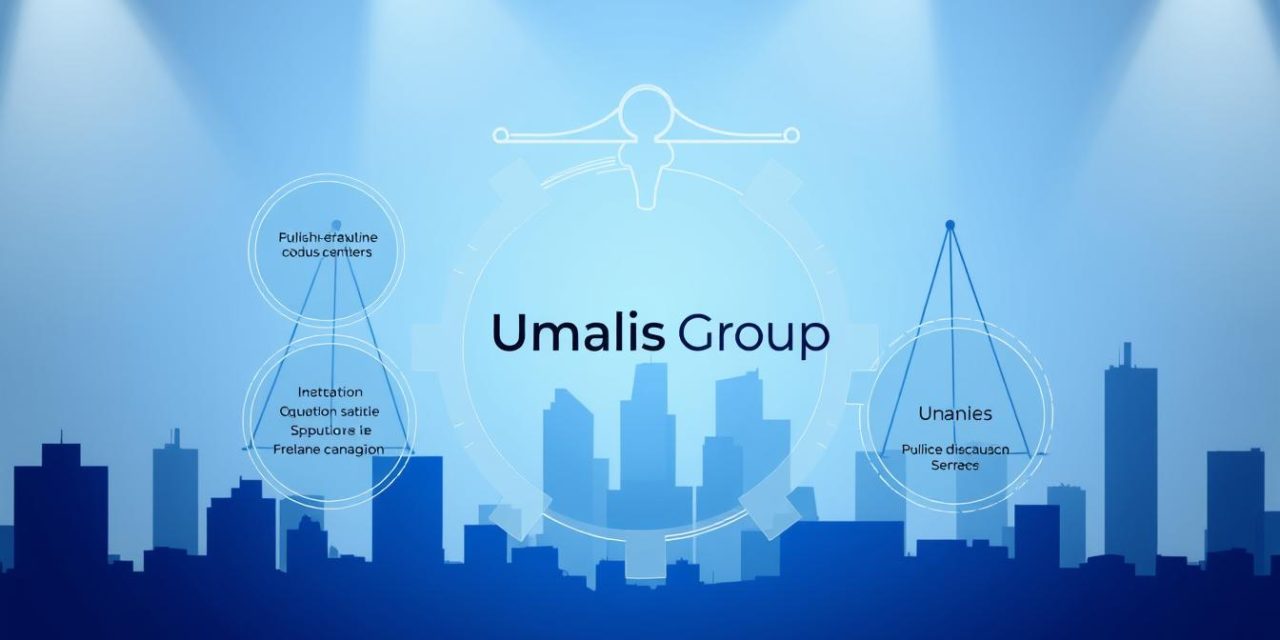Surprising fact: the Treaty of Lisbon obliges the European Union to assist victims of disasters and to coordinate civil protection across member states, shaping rules that touch even freelance contracts.
This opening explains why the EU’s mandate matters for you as an independent professional in France. We show how high-level treaty duties turn into concrete acts — Decisions, Regulations, and Implementing Decisions — that affect reporting, procurement, and safety requirements.
Understanding this legal framework helps you spot clauses tied to the Union Civil Protection Mechanism, rescEU capacities, and quality standards for emergency teams. We map those obligations into practical steps so you can meet documentation, due diligence, and coordination needs with confidence.
Our aim is pragmatic: give you a clear roadmap to monitor changes and protect project continuity. Read on to see how treaty commitments evolved into rules that shape freelance work in France.
Table of Contents
Key Takeaways
- The Treaty of Lisbon creates EU duties that influence national practice.
- Decisions and Regulations translate treaty goals into contractor obligations.
- rescEU and the Union Civil Protection Mechanism raise operational standards.
- Freelancers should track updates to stay eligible and compliant.
- We will map EU acts to everyday tasks like reporting and procurement.
Understanding the European Union architecture that shapes French freelance compliance
We explain who does what at EU level so you can spot obligations early and adapt your offers. Knowing the institutional path helps reduce surprises when project conditions change.
Treaty foundations: Articles 196 and 214
Articles 196 and 214 TFEU give the EU a mandate to coordinate civil protection and support humanitarian aid. These treaty bases led to Decision No 1313/2013/EU and later updates such as Decision (EU) 2019/420 and Regulation (EU) 2021/836.
Roles of the european parliament and the parliament council
The european parliament and the parliament council co-adopt Regulations and Decisions that set common standards. When they act, those acts can create rules that appear in tenders or contract clauses you must meet.
From policy to action: programs and implementing decisions
EP resolutions and Council Conclusions steer priorities. The Commission then issues Implementing Decisions—like 2019/570 and later updates—to operationalize rescEU capacities (medical stockpiles, CBRN, shelter, transport).
Why EU-level development matters to independent professionals in France
EU-level development changes eligibility, reporting formats, and safety thresholds that affect day-to-day work. By tracking which body adopts a decision and what it covers, you gain clarity on timelines and practical steps to stay compliant.
legal framework
Freelancers in France must know which EU acts set the terms for contracts tied to emergency and civil protection work. This short guide points to the headline instruments you will meet in calls for proposals and public tenders.
Start by noting the foundation: Decision No 1313/2013/EU created the UCPM and set preparedness, prevention, and response priorities. Amendments such as 2019/420 and Regulation (EU) 2021/836 broadened scope and operational capacity.
- Decision 1313/2013/EU and its updates — basis for tender conditions.
- Regulation (EU) 2016/369 and Regulation No 375/2014 — operational and volunteer rules to consider.
- Implementing Decisions (2019/570, 2019/1310) — technical criteria and reporting templates you may be asked to follow.
We recommend keeping a concise reference folder of these instruments. It streamlines due diligence and helps you match French procurement checks to EU requirements before you submit a bid.
Key legal instruments: regulations, decisions, and implementing rules
Knowing whether a text is a regulation or a decision tells you how a requirement reaches French contracting authorities.
Regulation vs. Decision: what changes for your obligations in France
Regulations such as (EU) 2021/836 apply directly across Member States. This reduces ambiguity for contractors and often appears in tender clauses as a binding standard.
Decisions — for example 1313/2013/EU and 2019/420 — set the UCPM structure and policy aims. They usually require national authorities to act, so obligations can appear via French administrative procedures rather than direct text.

Implementing rules and Commission Implementing Decisions: operationalizing measures
Implementing decisions translate policy into concrete criteria. Examples include 2019/570 and 2020/414 for medical stockpiles, 2021/88 for CBRN, and 2022/461 for logistics.
These acts set capacity types, quality thresholds, and stockpiling rules you may see mirrored in technical specifications.
| Instrument | How it applies | What you should watch for |
|---|---|---|
| Regulation (e.g., 2021/836) | Direct effect in France | Binding standards in contracts and bids |
| Decision (e.g., 1313/2013/EU) | Policy & mechanisms set at EU level | National implementation steps and procedures |
| Implementing Decisions (2019/570; 2020/414) | Operational details from the Commission | Technical specs, stockpile rules, quality checks |
| Parliament Council acts | Co-legislation that shapes scope | Timelines and mandates that trigger implementation |
Practical tip: keep a short checklist linking cited acts to your deliverables (SOPs, training, documentation). When an implementing decision updates quality standards, adapt quickly to stay eligible for projects and tenders.
From EU decision to French obligation: the implementation pathway
Moving from Brussels’ text to French procedure means requirements can arrive in procurement documents without extra national steps.
How EU Regulations (e.g., 2021/836) apply directly
Regulation (EU) 2021/836 applies across Member States without transposition. For you, that means some standards can appear immediately in calls for tenders and project criteria.
How Decisions (e.g., 2019/420; 1313/2013/EU) drive national measures
Decisions set the scope and push French authorities to update procedures, documentation, and checks. Expect contract clauses and verification steps that mirror the EU decision text.
Implementing Decisions (2019/570 and amendments): lessons for sectoral compliance
Implementing acts define sector rules — medical stockpiles, CBRN, shelter, transport. Your practical task is to mirror these specifications in policies, training records, and equipment certification.
- Identify the base act named in the tender.
- Locate the latest amendment and confirm which version applies.
- Map each cited act to internal controls and deliverables.
Tip: monitor amendments close to deadlines and keep a short compliance matrix to avoid submitting outdated narratives.
Programs and actions as case studies: the Union Civil Protection Mechanism and rescEU
Understanding the UCPM and rescEU helps you align services with donor needs and procurement rules. The UCPM is a clear programme for prevention, preparedness, and response. It began with Decision No 1313/2013/EU and evolved through Decision (EU) 2019/420 and Regulation (EU) 2021/836.
How the mechanism and rescEU work in practice
The UCPM pools Member State assets and coordinates deployments. rescEU acts as a strategic reserve with defined capacities.
- rescue capacities include transport, logistics, shelter, CBRN, and medical stockpiles set by Implementing Decisions such as 2019/570 and 2020/414.
- The European Civil Protection Pool (2019/1310) sets operational rules for deployments you may support.
- The Knowledge Network (2021/1956) offers tools and best practices you can cite in bids.
| Capability | Relevant act | What freelancers supply |
|---|---|---|
| Medical stockpiles | 2019/570, 2020/414 | Procurement, inventory management, rapid deployment teams |
| CBRN | 2021/88, 2021/1886 | Specialist training, equipment validation, safety planning |
| Transport & logistics | 2022/461 | Logistics planning, transport providers, tracking systems |
Quick tip: reference the right decision and implementing acts in proposals to show you meet EU terminology and operational standards. This improves credibility and chances to win contracts in France and beyond.
International instruments that inform EU and national frameworks
Global and regional instruments shape expectations for transfers, brokering, and end-use checks that can affect freelance work.

United Nations treaties such as UNTOC (2000), the Firearms Protocol (2001) and the Arms Trade Treaty (2013) set broad goals on crime prevention and trade controls.
Other UN initiatives — the Programme of Action on Small Arms (2001) and the International Tracing Instrument (2005) — focus on tracing, reporting, and responsible end-use.
Regional approaches and EU links
The OSCE offers practical best practices, brokering principles, and end-user guidance that member states often mirror in procurement checks.
At EU level, Council common positions and rules (for example 2003/468/CFSP, 2008/944/CFSP and Regulation 258/2012) translate international commitments into obligations you may see cited in a decision or tender.
| Instrument | Primary aim | Practical impact for freelancers | Example |
|---|---|---|---|
| UNTOC & Firearms Protocol | Criminal justice & trafficking | Screening, vetting, incident reporting | Criminal-record checks |
| Arms Trade Treaty | Export controls & risk assessment | Export licences, end-user vetting | Risk assessments for shipments |
| OSCE documents | Best practices & brokering rules | Standard operating procedures, training | Brokering checklists |
| EU common positions / regs | Regional implementation | Procurement clauses, compliance proofs | Regulation 258/2012 citations |
We recommend keeping a short register of applicable instruments per project. That helps you answer queries from contracting authorities and limits delays from export controls or end-user verification.
What this means for freelancers working in or with EU entities
When you bid on EU-funded work, expect tender language to reference specific acts and operational standards.
Practical expectations: contracting authorities will ask for evidence of quality management, safety procedures, and data reporting that mirror Decision No 1313/2013/EU, Decision (EU) 2019/420, and Regulation (EU) 2021/836.
Anticipate due diligence on capability and reliability when tasks touch rescEU capacities. You may need to supply training records, equipment certifications, and incident-report templates.
Cite acts correctly. RFPs often name the exact decision or implementing decision (for example 2019/570 or 2019/1310). Align your deliverables to those standards to speed evaluations.
Plan for audits: Implementing Decisions drive performance reviews. Keep compliance files current, accessible, and versioned.
- Clarify which version of an act applies during the contract period (parliament council adoption dates matter).
- Reuse harmonized templates across Member States to save time and improve consistency.
- Schedule extra time for regulatory checks in your project plan to protect delivery dates.
- Communicate early with contracting authorities to resolve citation ambiguities.
| Area | What to prepare | Why it matters |
|---|---|---|
| Quality & Safety | SOPs, certifications, training logs | Matches EU operational standards for bids |
| Reporting | Templates, data formats, incident reports | Ensures compatibility with implementing decisions |
| Due diligence | References, past performance, asset lists | Confirms capability for rescEU tasks |
Compliance roadmap for freelancers in France
A clear mapping of services to applicable acts helps you spot obligations early and price risk correctly.
Map your activities by listing each service and the specific EU act or national measure that may apply. Note whether a Regulation has direct effect or a decision leads to national implementing rules. This step reduces uncertainty during bids.
Map your activities to applicable EU regulations and national measures
Identify core acts in your sector—1313/2013/EU, 2019/420, 2021/836—and link them to tasks such as stockpile handling or CBRN checks. Include Implementing Decisions like 2019/570 and its amendments when those technical specs apply.
Contracting with public or EU-funded programs: due diligence essentials
Build a due diligence checklist that covers capacity proofs, quality standards, and safety checks. Add export or end‑use verifications if your work touches equipment or transport.
Documentation and reporting: aligning with implementing rules where relevant
Prepare a documentation pack: certifications, SOPs, training logs, equipment compliance records, and incident reporting templates aligned to relevant implementing rules. Keep versioned files to match the act cited in the tender.
Monitoring updates: proposals and amendments that can shift obligations
Set a monitoring cadence for proposals and amendments—note the 17/07/2025 UCPM update proposal—and adjust templates when measures change. Engage contracting authorities early to confirm which text version governs the project.
| Action | What to include | Why it matters |
|---|---|---|
| Service-to-act mapping | List of services linked to specific acts | Clarifies obligations and pricing |
| Due diligence checklist | Capacity proofs, safety, data formats | Required for public/EU-funded contracts |
| Documentation pack | SOPs, certificates, incident templates | Makes audits and evaluations faster |
| Monitoring & change log | Update cadence, amendment tracker | Ensures compliance after updates |
Practical tip: integrate compliance milestones into project plans and train subcontractors on exact standards. A short change log creates traceability that reassures evaluators and protects your delivery dates.
The role of European Parliament resolutions and Council conclusions
European Parliament resolutions and Council conclusions often act as foresight signals that shape policy debate long before rules become binding.
These non-binding texts set priorities on prevention, early warning, and risk assessment. They guided measures between 2007 and 2011 that later fed into Decision 1313/2013/EU and its updates.
How non-binding instruments guide future regulation and practical action
Why it matters: political signals nudge the Commission and member states to draft formal proposals. A resolution asking for better early warning can prompt an implementing decision or technical standard.
- Pattern: resolutions on disaster prevention (2010) and response capacity (2008) preceded concrete measures.
- Monitoring these texts gives you early warning of tighter operational rules.
- Use short policy horizon notes in client updates to show preparedness.
| Instrument type | Typical content | How freelancers act |
|---|---|---|
| EP resolution | Policy priorities, calls for action | Track topics; update capability statements |
| Council conclusions | Shared priorities, risk assessment focus | Adapt SOPs and training plans |
| Follow-up measures | Draft proposals, implementing acts | Invest early in tools and records |
Authoritative resources to track decisions, regulations, and implementing measures
Trustworthy public repositories are the fastest way to validate applicable decisions and technical specs. We recommend a small, curated index you consult before every bid or deliverable.
European Commission and Implementing Decisions
Start with the European Commission’s legal pages for the UCPM. Bookmark pages listing 1313/2013/EU, 2019/420, 2021/836 and Implementing Decisions like 2019/570, 2019/1310, 2020/414, and 2022/461.
UN and regional repositories
For security-related projects, consult UN treaty repositories (UNTOC, Firearms Protocol, Arms Trade Treaty) and OSCE portals for small arms best practice. These sources help when end‑use checks and export rules apply.
- Create a resource index with scope notes and last-checked dates.
- Subscribe to update feeds or newsletters to catch amendments quickly.
- Keep a shared folder so your team uses the same citations and reduces errors.
| Source | What to check | Why it matters |
|---|---|---|
| European Commission | UCPM acts & Implementing Decisions | Authoritative text for bids and technical specs |
| UN repositories | UNTOC, Firearms Protocol, ATT | International obligations and export checks |
| OSCE portals | SALW best practices | Operational guidance and brokering rules |
| UCPM programme pages | RescEU capacities, Knowledge Network | Context, training, and tender references |
Practical tip: when a contracting authority cites a specific decision, open the cited act and note the exact clause and version. That small step saves time and strengthens your proposal.
We also track signals from the european parliament and the european union policy pages to anticipate changes that affect the programme.
Conclusion
legal framework matters because it turns treaty goals into the specific rules you will face in bids and contracts.
Treat every tender citation as a map: open the cited decision, check amendments such as 2019/420 and Regulation 2021/836, and adapt your documents before you submit.
We recommend a tight compliance routine: maintain checklists, SOPs, and training logs mapped to the exact act. Watch signals from the european parliament and the european parliament council to anticipate changes.
Following this practical path reduces risk, speeds responses to tenders, and positions you as a dependable partner for public and EU-linked projects in France.
FAQ
What is the scope of the guide "Legal Framework: A Guide for Freelancers in France"?
This guide explains how European Union acts, national measures, and international instruments affect independent professionals in France. We map treaty bases, key instruments like regulations and decisions, implementation steps, and practical compliance actions so you can operate with confidence.
How does the EU architecture shape French freelance compliance?
The EU sets common objectives through treaties, then the European Parliament and the Council adopt measures — regulations, directives, and decisions — that influence member states. France transposes or applies these instruments, which creates obligations or operational rules affecting freelancers, especially when working with public bodies or EU-funded programmes.
What are Articles 196 and 214 and why do they matter?
Articles 196 and 214 of EU primary law provide legal bases for EU action in civil protection and crisis response. They justify measures, programmes, and funding that create obligations or opportunities for service providers, including independent consultants engaged in related projects.
What roles do the European Parliament and the Council play in adopting measures?
The European Parliament and the Council co-legislate on many EU instruments. The Parliament represents citizens; the Council represents member states. Together they adopt regulations and decisions that can be directly applicable in France or require national follow-up, affecting contract terms and compliance requirements.
How do programmes and actions translate into practical measures for freelancers?
EU programmes fund projects, define eligibility, and set reporting rules. When you contract with an EU-funded programme or partner with a public authority, those programme rules — on procurement, data, or deliverables — become part of your obligations. We recommend checking programme notices and grant agreements early in negotiations.
What is the difference between a regulation and a decision for my obligations in France?
A regulation is directly applicable across the EU and usually creates immediate duties or standards. A decision can be binding but often targets specific parties or situations. For freelancers, regulations set general rules you must follow; decisions may impose obligations on specific projects or beneficiaries.
What are Commission Implementing Decisions and implementing rules?
Implementing Decisions operationalize laws: they set technical details, templates, timelines, or procedures needed to apply a regulation or decision. For you, they clarify reporting formats, eligibility checks, or compliance deadlines tied to contracts or grants.
How does an EU regulation like 2021/836 apply to a freelancer?
If a regulation is directly applicable, its provisions apply without national transposition. That can affect procurement, programme participation, or sector-specific duties. Review the regulation text and any implementing acts to see explicit obligations relevant to your services.
How do EU decisions such as 2019/420 or 1313/2013/EU influence national measures?
Those decisions direct member states or institutions to take specific actions or establish mechanisms. France may adopt national measures or operational rules to comply. If you work on projects governed by these decisions, you must follow the resulting national procedures and reporting requirements.
What practical lessons do Implementing Decisions (e.g., 2019/570) offer for sectoral compliance?
Implementing Decisions highlight detailed obligations — such as data reporting, technical standards, or procurement processes — that organisations must follow. For freelancers, they signal the precise formats and timelines you must respect when delivering services under affected programmes.
How do programmes like the Union Civil Protection Mechanism and rescEU affect independent professionals?
These programmes establish coordination, procurement, and deployment rules for civil protection assets. Freelancers involved in logistics, medical support, shelter design, or CBRN services may need specific certifications, contract clauses, or reporting practices tied to programme requirements.
What kinds of capacities are covered by rescEU that freelancers may engage with?
rescEU covers transport, logistics, shelter, CBRN response, and medical stockpiles. If you provide consultancy, technical services, or supply chain support, you must meet contracting criteria and interoperability standards defined by programme documents and implementing acts.
Which international instruments inform EU and French measures?
Treaties and protocols from the United Nations — such as UNTOC, the Firearms Protocol, and the Arms Trade Treaty — plus regional guidance like OSCE best practices, shape EU policy and national implementation. These instruments can influence compliance expectations in security-sensitive sectors.
Why should freelancers care about non-binding acts like European Parliament resolutions or Council conclusions?
Although non-binding, resolutions and conclusions shape policy direction and can precede binding legislation. Monitoring them helps you anticipate regulatory shifts, adapt service offerings, and advise clients proactively during procurement or project planning.
How do I map my activities to applicable EU regulations and national measures?
Start by identifying the sector, contract type, and funding source. Check the relevant EU regulation or decision, then review French implementing measures. Maintain a compliance checklist covering certifications, reporting formats, timelines, and data rules to align your operations.
What due diligence is required when contracting with public or EU-funded programmes?
Conduct contractual due diligence: verify eligibility criteria, procurement rules, state aid constraints, insurance, and intellectual property terms. Confirm required deliverables, audit rights, and financial reporting obligations before signing.
What documentation and reporting should I prepare to meet implementing rules?
Common items include invoices with required references, activity reports, timesheets, technical deliverables, and audit-ready financial records. Save original documents and follow templates in grant agreements or implementing acts to avoid disputes.
How can I monitor proposals and amendments that may change my obligations?
Track the European Commission’s legislative proposals, the Official Journal of the EU, and French ministry updates. Subscribe to sectoral newsletters, and use official legal databases to receive alerts on amendments affecting your services.
Where can I find authoritative resources on decisions, regulations, and implementing measures?
Use the European Commission’s legal pages, the EUR-Lex database, and national government portals for implementing acts. For international instruments, consult UN treaty collections and OSCE repositories to verify texts and guidance.
What immediate steps should a freelancer take after identifying a relevant EU act?
Review the act and any implementing decisions, check national transposition if applicable, update contract templates, and confirm required registrations or certifications. Seek specialised advice where obligations are complex or sector-specific.
How can freelancers working with EU entities demonstrate compliance effectively?
Maintain clear documentation, follow prescribed templates, keep timely reports, and ensure contractual clauses reflect regulatory duties. Demonstrating prior compliant experience and transparent financial records strengthens bids for EU-funded work.





